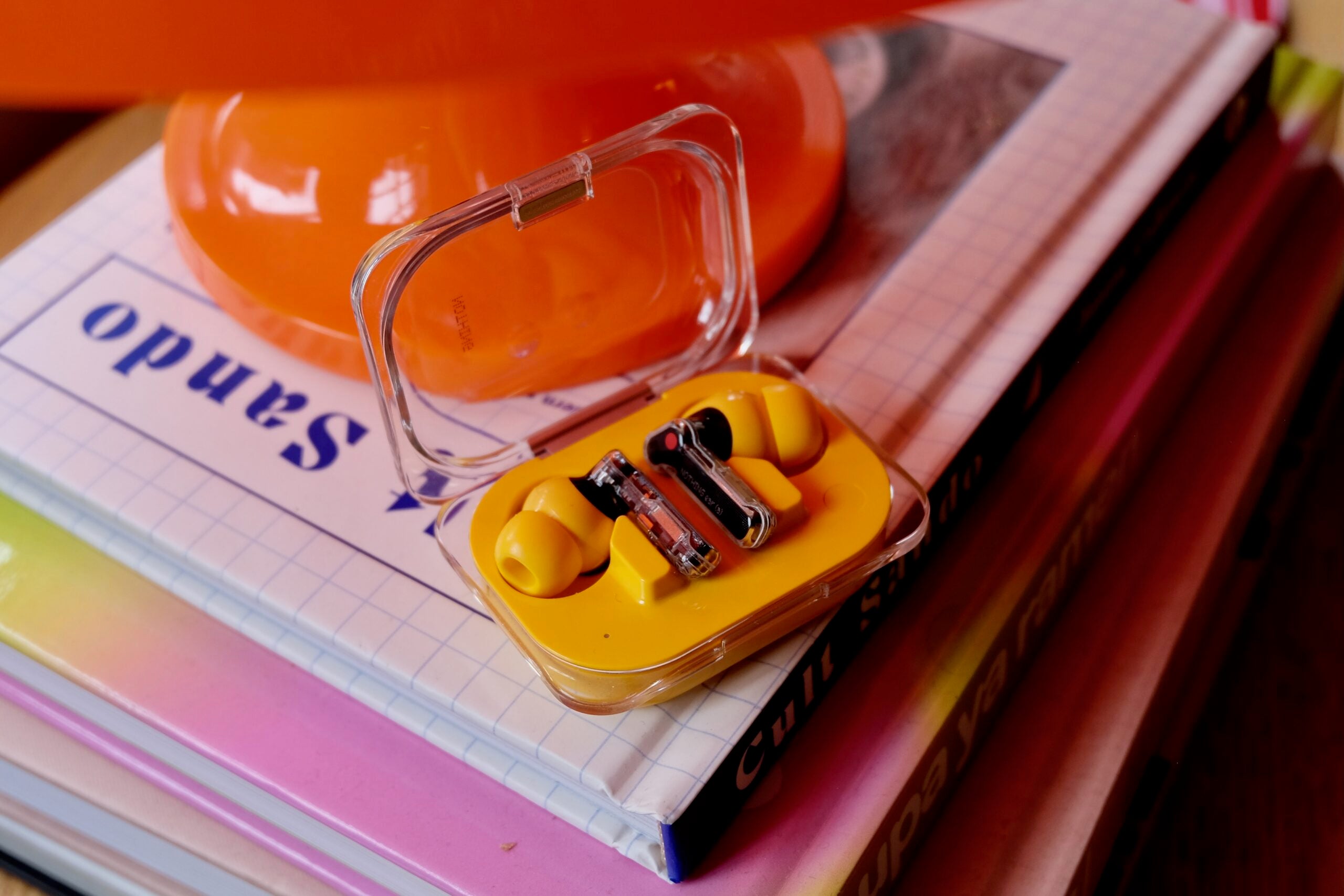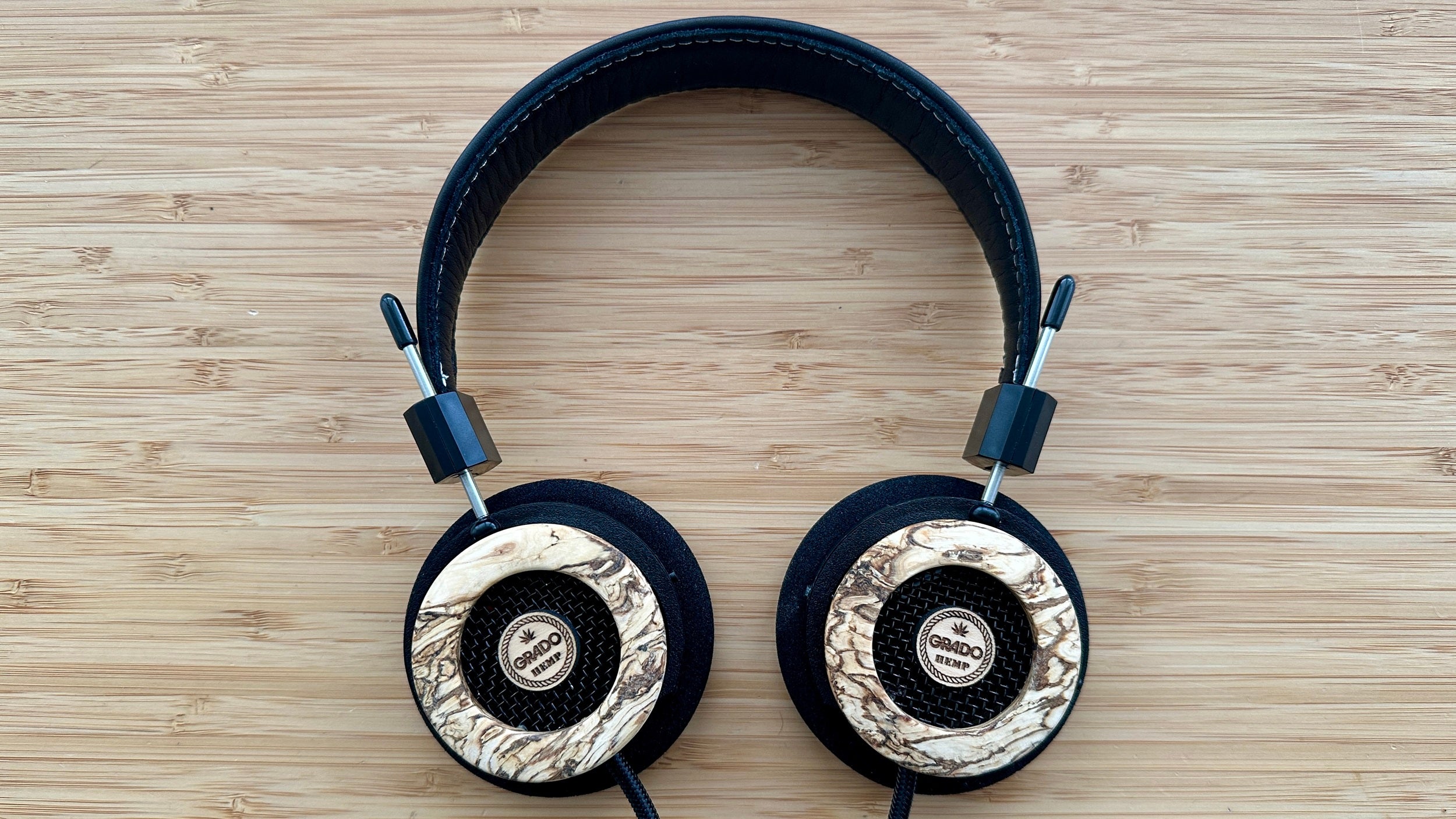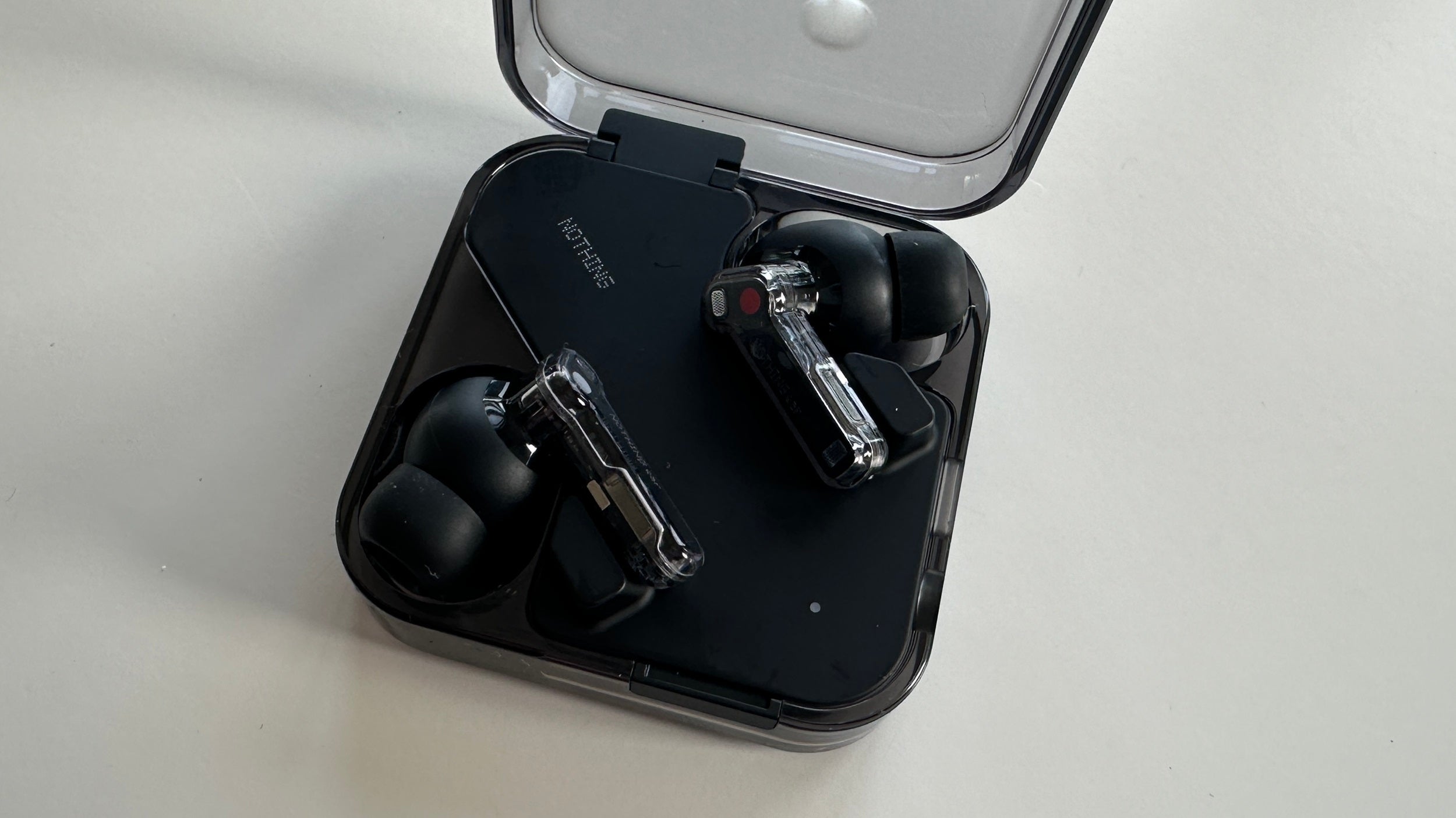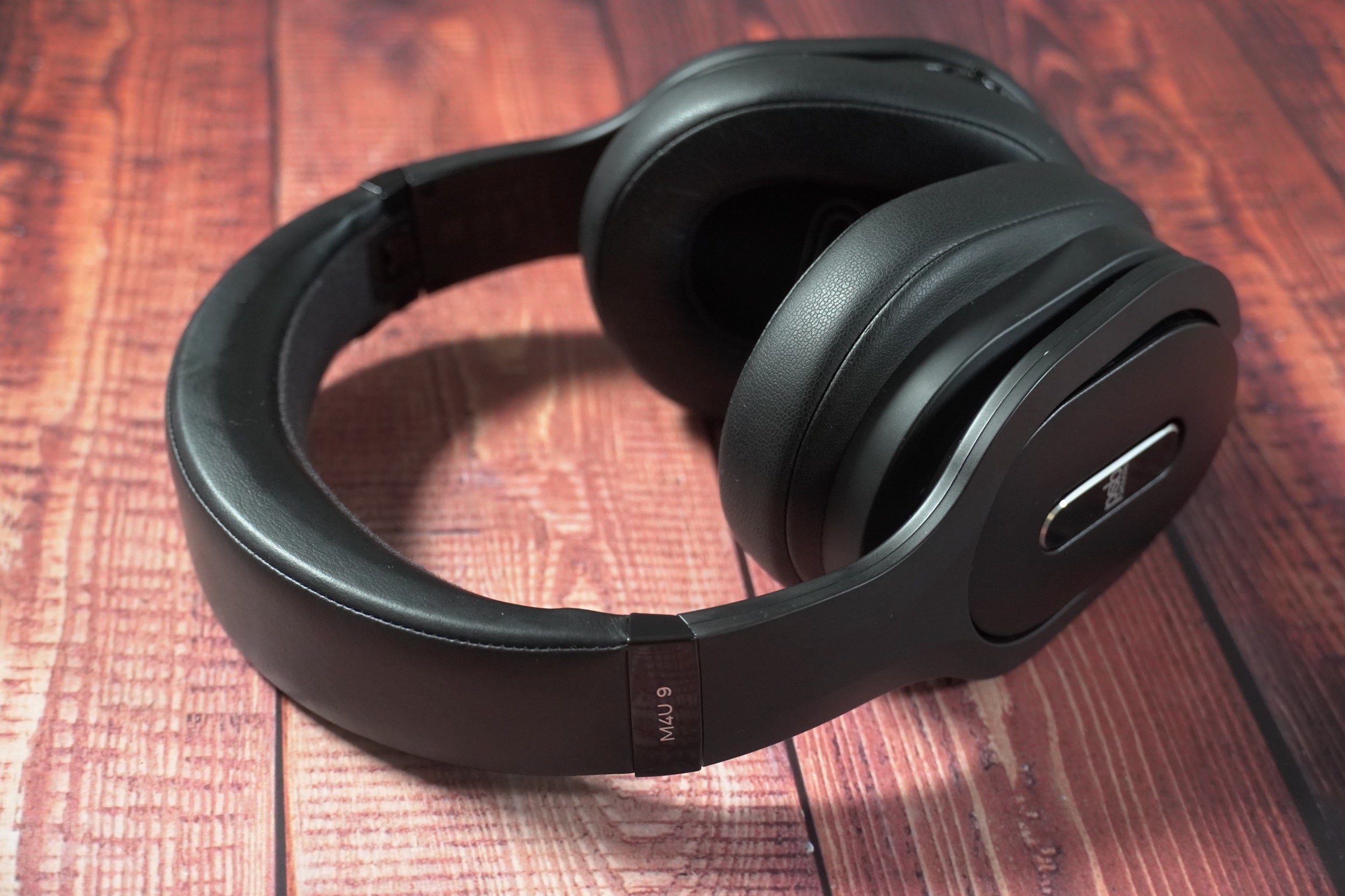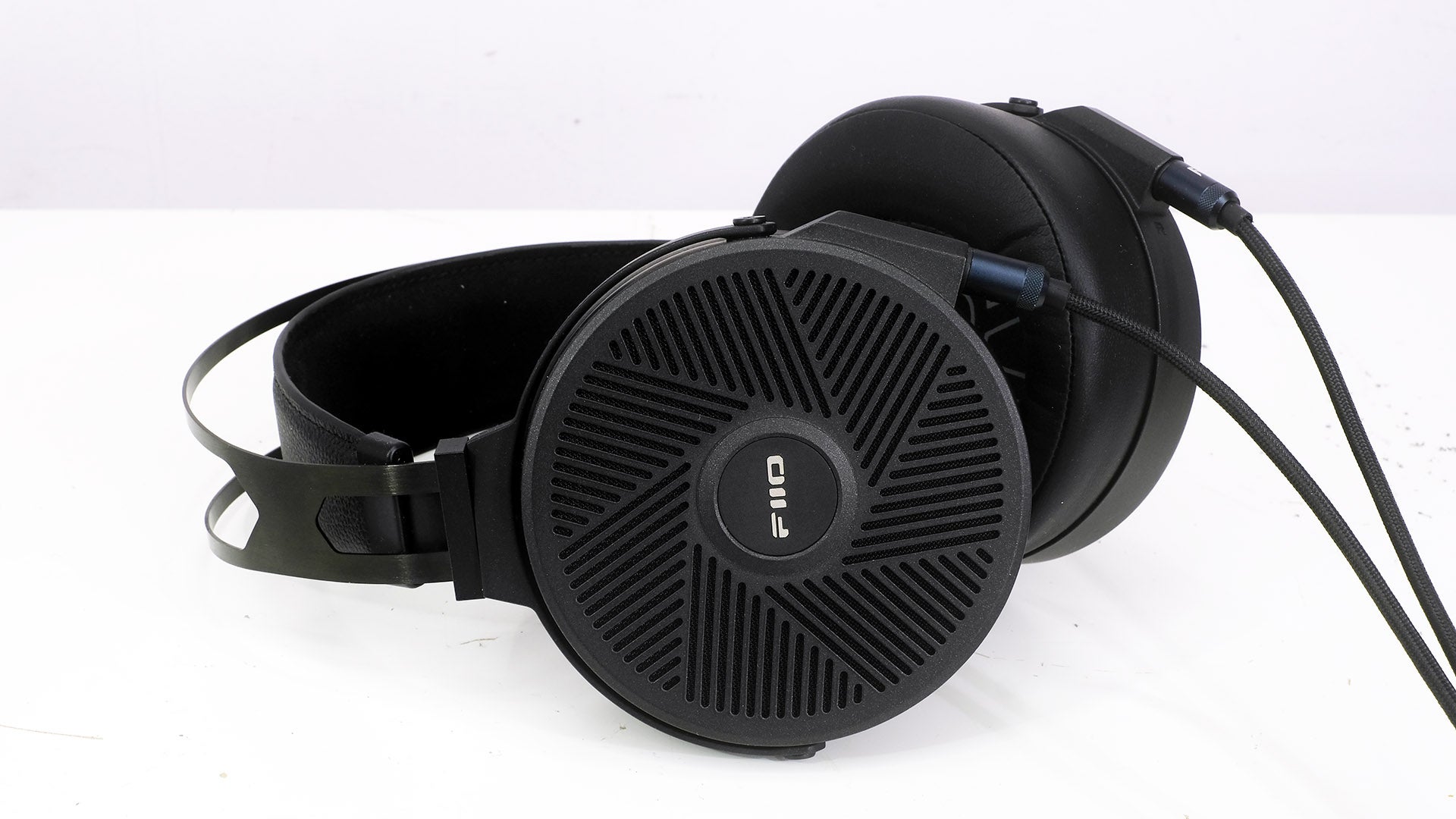JBL Soundgear Sense Review
A good performance from JBL's sporty air conduction buds
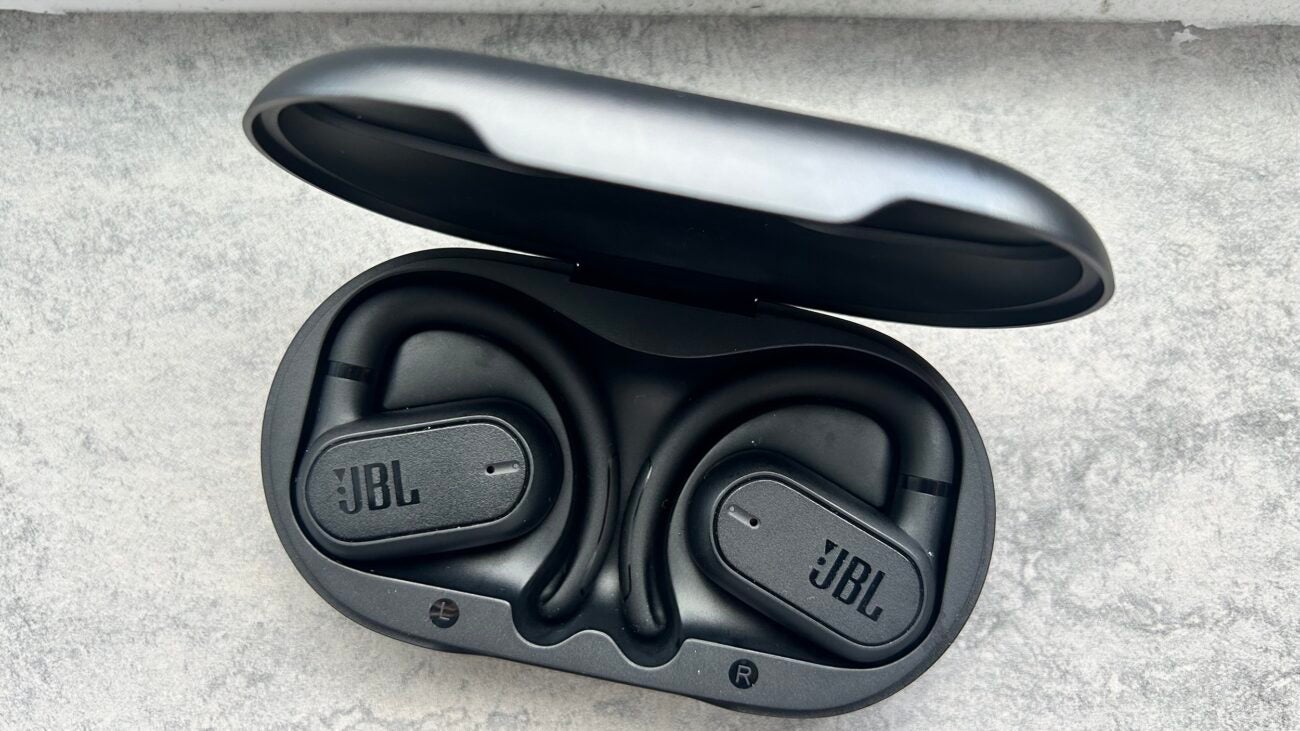
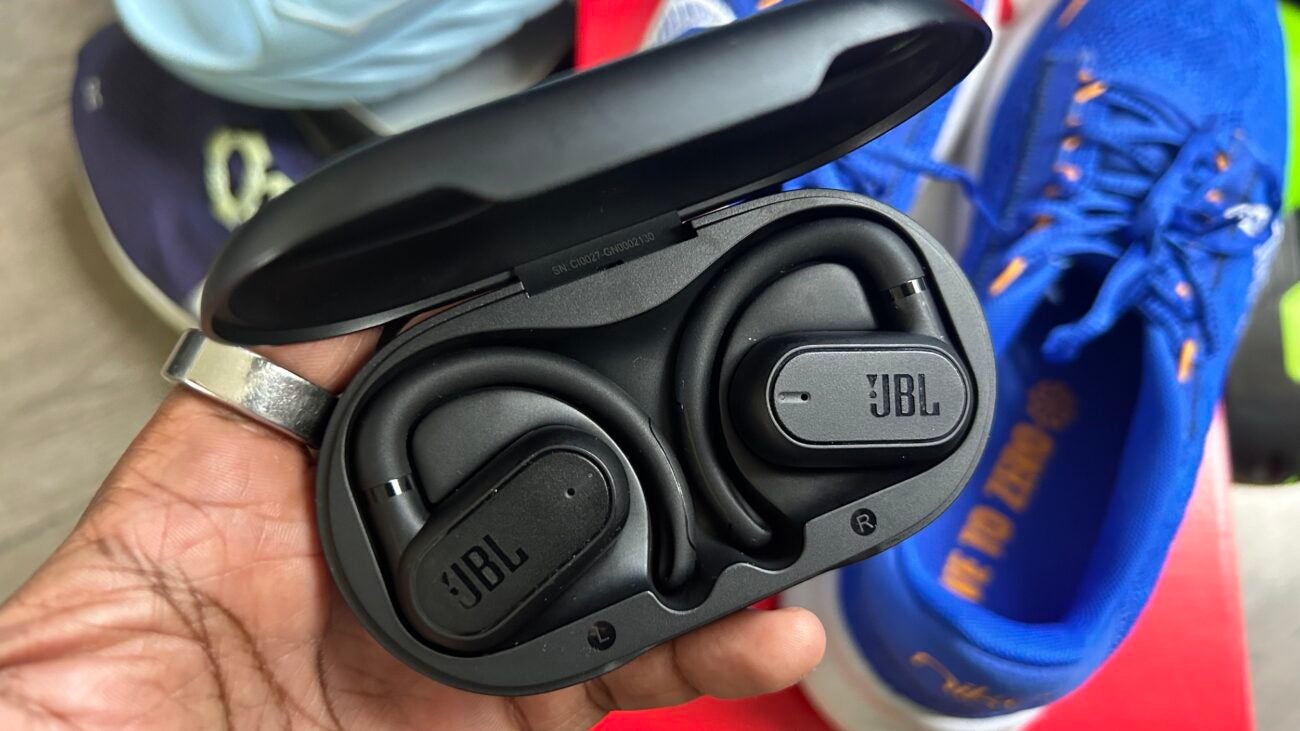



Verdict
The JBL Soundgear Sense are solid performing open-ear headphones that deliver great sound, two ways to wear them and proves you can get good air conduction sound for less than big name competitors.
Pros
- Bright and customisable sound
- Secure, reliable fit
- Adjustable speaker design
Cons
- Not the slimmest open ear headphones available
- Battery performance at louder volumes
- Can’t control EQ modes from headphones
Key Features
- Adjustable designAdd a neckband for a more stable fit
- OpenSound techNatural sound with “zero” sound leakage
- Water resistanceIP54 rated against water, dirt and dust
Introduction
The JBL Soundgear Sense is part of a new wave of air conduction headphones that aim to deliver better quality open-ear sound than bone conduction headphones.
Like many of the air conduction headphones I’ve tested, the Soundgear Sense is firmly aimed at fitness fans who want a safer way to listen to their sounds. They’ll also have appeal to anyone who doesn’t like the idea of entirely blocking out the world with a pair of in-ear or on-ear headphones.
To help stand out of the crowd, JBL offers two wearing options with the Sense, an adjustable design to alter the effectiveness of the awareness effect you can enjoy, EQ modes and up to 24 hours of battery life (when you factor in the case).
So, do the Soundgear Sense deliver where it matters most? Here’s my take.
Availability
The JBL Soundgear Sense cost £129.99 (I couldn’t find official US or AUS pricing) and currently seem to be only available to buy through the JBL website.
If you compare that to other high profile open-ear, air conduction headphones, that makes them a fair bit cheaper than the Shokz OpenFit, but not quite as affordable as the Sivga S01, which we named our 2023 Trusted Reviews Sports Headphones of the Year.
Design
- Can be worn as truly wireless or neckband headphones
- Uses touch controls
- IP54 splash and dust resistant
Out of the box, the Soundgear Sense looks like your regular set of earhook-style truly wireless earbuds. It’s a look that’s very much in keeping with other JBL earbuds like the Endurance Peak 3.
They come in either all black or all white colours, with JBL emblazoned on the main speaker part of the buds, attached to flexible ear hooks. They sit inside of a charging case when not in use, with a USB-C charging port around to power the case.
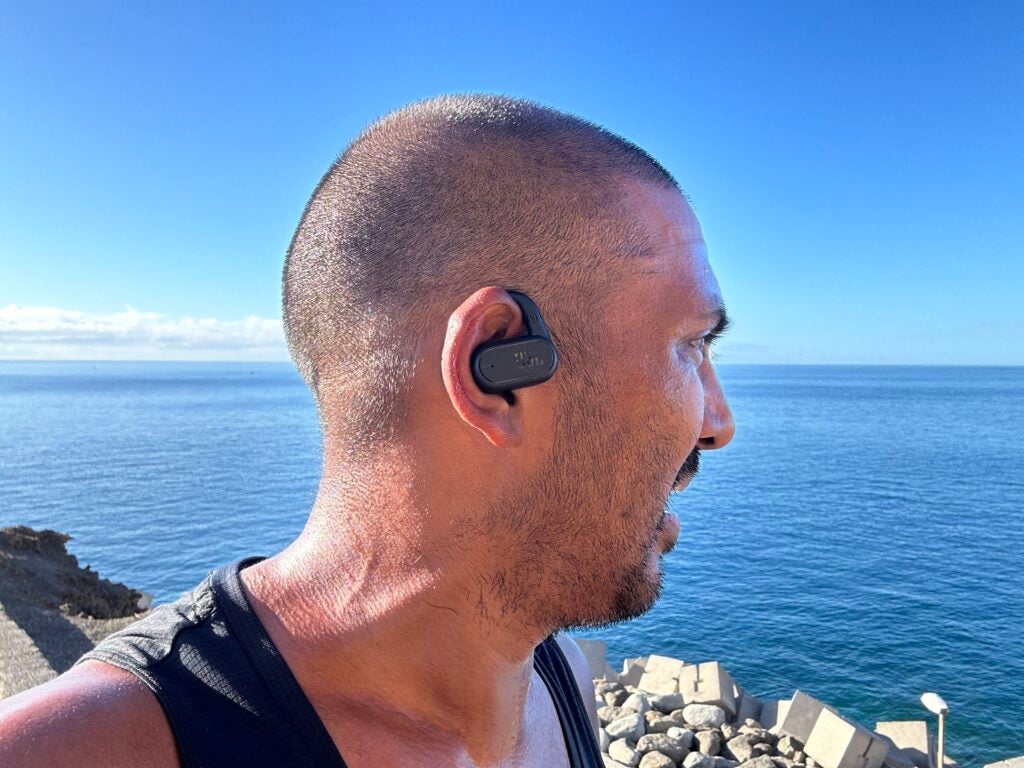
If you compare them to air conduction headphones like the Shokz OpenFit, the Sense feels bulkier in comparison, but as mentioned, they’re not too dissimilar in stature to the Endurance Peak 3. I’d have liked them to have been a touch slimmer and sit more discreetly on the ears, and while they don’t disappear when they’re on, they certainly don’t weigh heavily either.
The buds have an IP54 rated design, which means they’re resistant to some water splashing and have some protection against dust. I’ve used them near water, in the rain and running on the beach and had no issues. It’s not the strongest level of protection you’ll find on a set of sporty headphones, and it gives them some added rugged appeal.
In terms of the secureness of the fit, it’s been very good overall. I’ve used them for outdoor runs, walks and indoor gym sessions and they haven’t slipped about. What I like here is that JBL is giving you an added wearing option, so in the box you’ll find a neckband that you can press the ends of the ear hooks into to provide a more reliable fit.
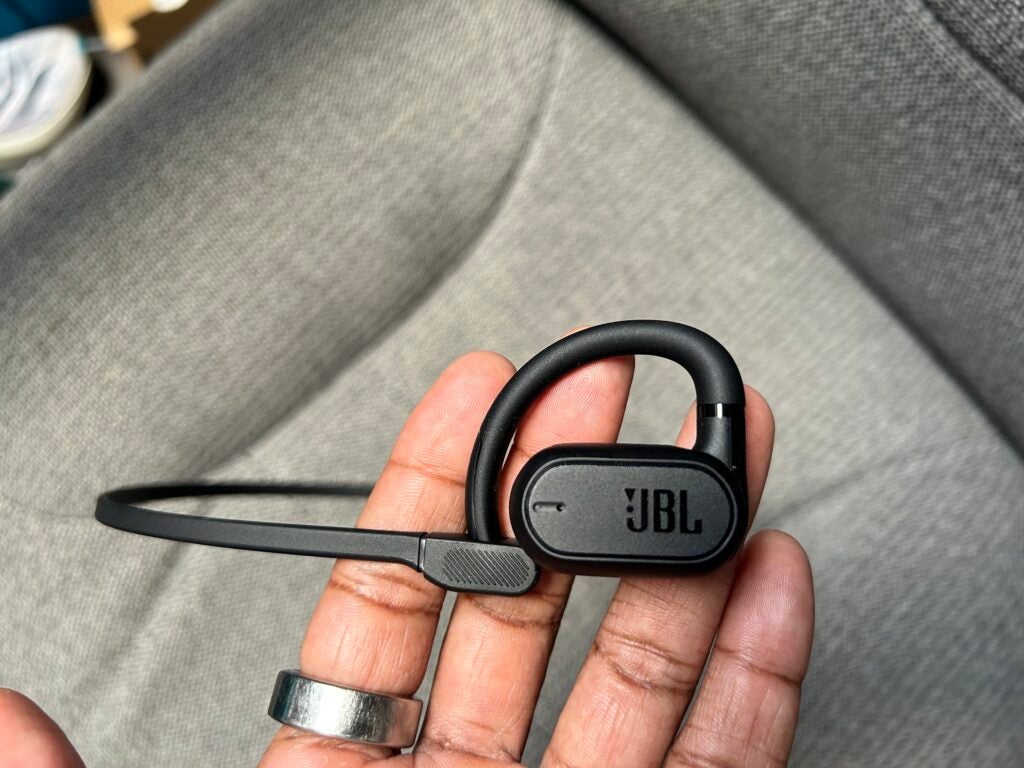
I found that when things got a bit sweatier, that neckband can be beneficial but not essential to have. It’s not necessarily the sleekest way to add the neckband into the mix but it certainly shows that JBL has thought about offering that added security to the design.
While it’s not instantly apparent, JBL does include some onboard controls here. They’re the touch control kind, which let you adjust volume, summon your phone’s smart assistant, skip, and play and pause audio and handle calls. You can adjust these controls in the companion JBL app to decide which bud they’re assigned to. I’d put these touch controls firmly in the good category in terms of responsiveness to touch and not being overly sensitive either.
Features
- 16.2mm driver
- 5 EQ modes included
- Four built-in microphones
Powering the audio is a 16.2mm-sized driver, with four voice microphones included to cover taking calls. These headphones also pair with the JBL app, where you’ll find an EQ along with 5 EQ presets.
You’ll also find the ability to switch between an audio and video mode, with the latter designed to better suit listening to audio when watching video. You can adjust the sound balance between the two buds, limit the maximum volume to protect your ears and there’s also a handy find my buds mode available too. These buds can be used individually if you need to free up an ear.
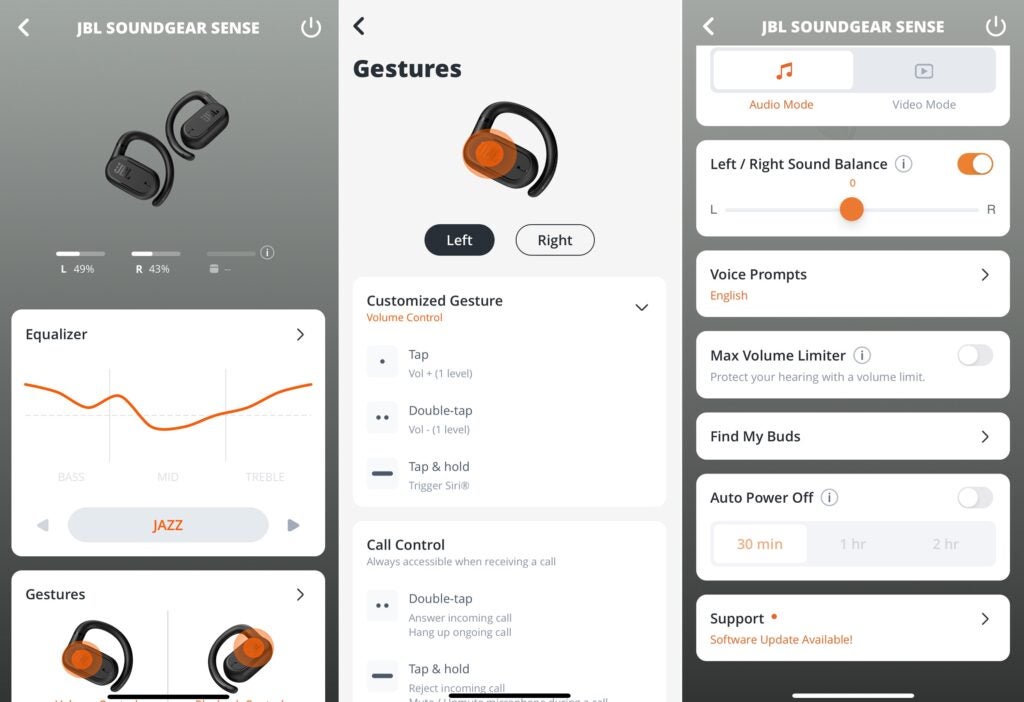
On the battery life front, JBL states you should get up to six hours off a single charge, which can be topped up to 18 hours with a fully charged charging case. There’s also a quick charge mode that gives you 4 hours of listening time from a 15-minute charge. I’d say those battery numbers are pretty much on the money.
I would say, though, that listening at louder volumes sees the battery notably drop much quicker. An hour’s use at not quite max volume saw battery drop by around 20-25% in general. That works out to be about five hours of battery off a single charge. You can get six hours, but you’ll need to listen at noticeably quieter volumes to get it.
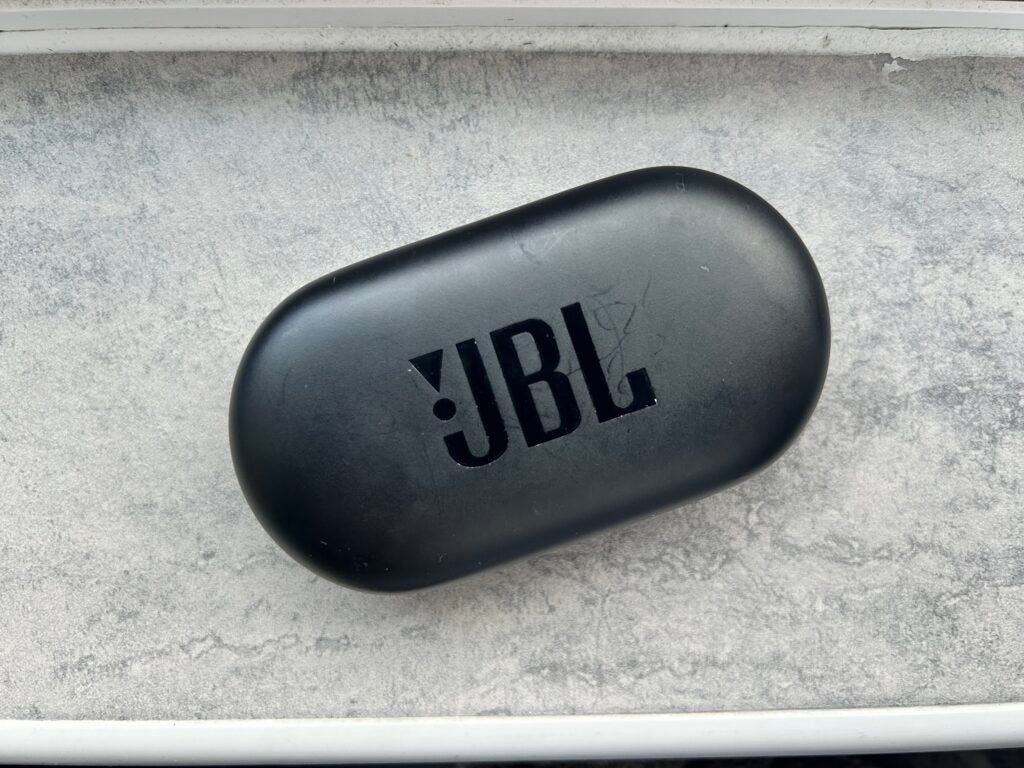
If you want to make calls with the Soundgear Sense, they can certainly deliver solid performance too. They’re louder and more powerful sounding than most bone conduction headphones with good clarity making them more than suitable to handle a meeting on the move.
Sound Quality
- Uses air conduction to deliver audio
- Bright but warm sound
- Decent balance between audio and awareness
The Soundgear Sense’s approach to delivering sound is essentially what’s become known as air conduction. What is air conduction? Well, it’s putting speakers near your ears to deliver sound without blocking them up, leaving you free to still be more aware of what’s going on around you.
The biggest advantage over bone conduction is enjoying noticeably bigger, bassier sound and you have more control over how that audio sounds as well. The effectiveness of that awareness does typically seem to be less effective on air conduction versus bone conduction, but it does seem that JBL has tried to address this in a simple way.
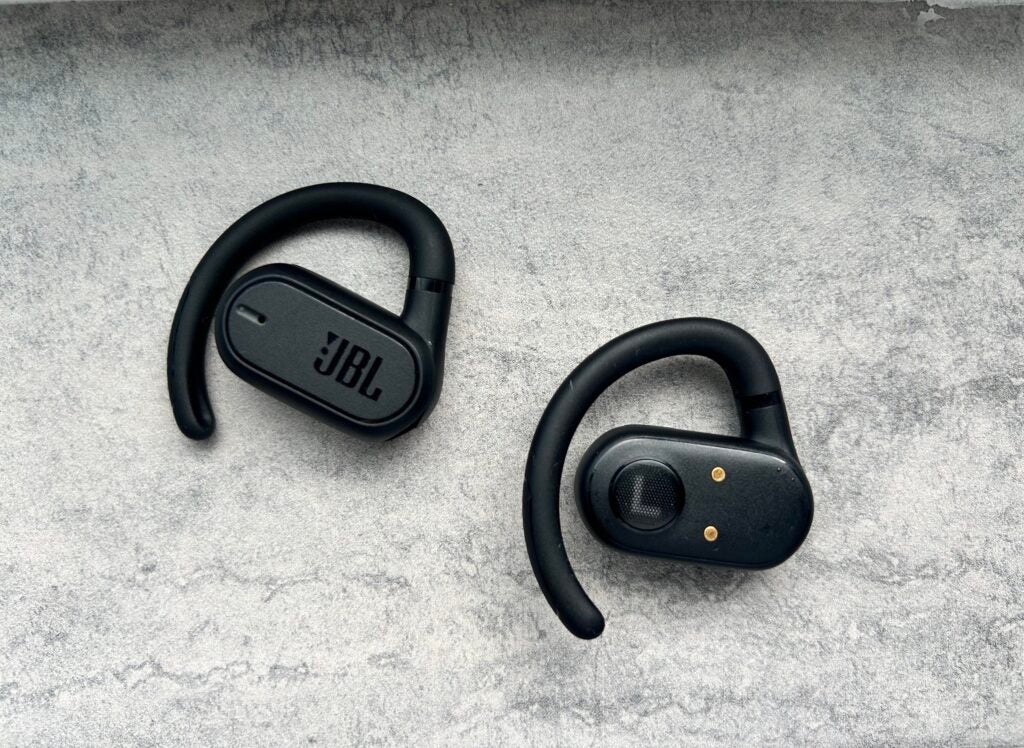
I’d describe the sound on the Soundgear Sense as typically JBL and that’s actually a good thing. It’s undeniably bright, there’s plenty of warmth there too and whether you want that bass or to finesse things for more refined listening, you certainly have scope to do that.
I use the Songs To Test Headphones With Spotify playlist to get a good sense of how versatile the sound profile really is and it’s very good on the whole. On Chan Chan by Buena Vista Social Club, mids are smooth and trebles don’t sound at all harsh or grainy.
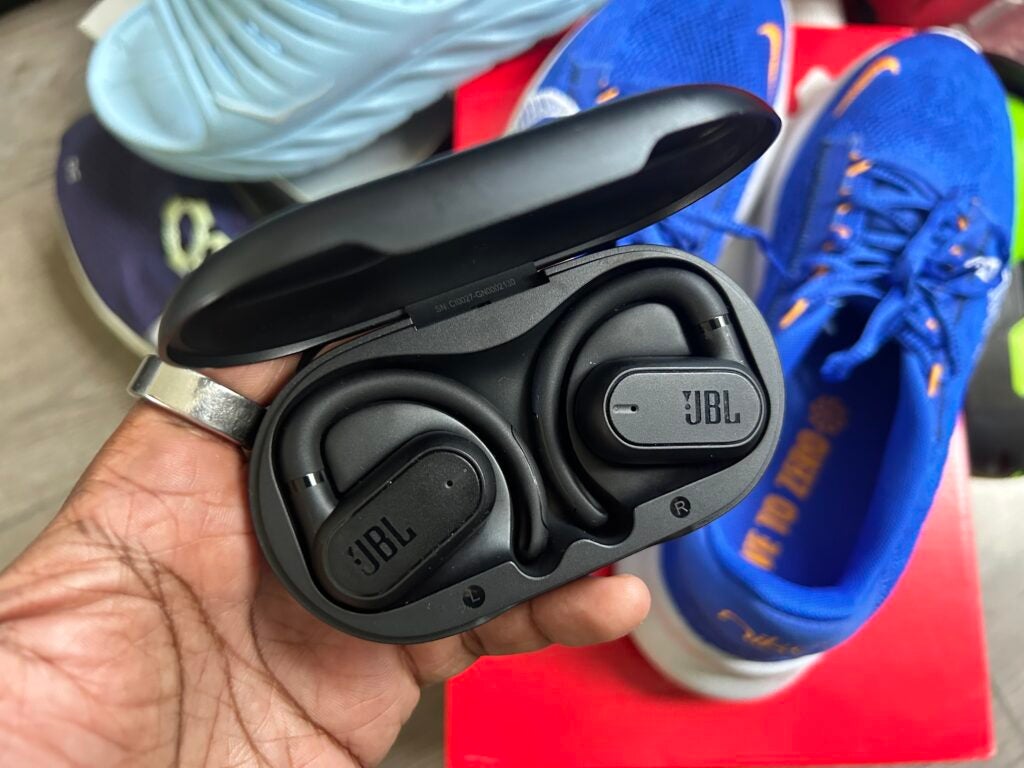
On Wrong by Everything But The Girl where there’s a bigger emphasis on that bass performance, it’s punchy and doesn’t feel too prominent in the mix. On a track like Marilyn by Mount Kimbie it shows that playing around with the EQ modes can get you a pleasing and balanced sound.
Delivering that likeable audio is slightly irrelevant if it doesn’t achieve it when you introduce more exterior sounds. I’d say the Soundgear Sense overall does a fine job of balancing out headphone audio with other sounds in your environment. To better counteract the Sense’s speakers from winning the battle, JBL incorporates a hinged design that lets you move the speaker units closer and further away from your ears to improve that level of awareness.
Latest deals
Should you buy it?
You want solid-sounding, secure-fitting open ear sports earbuds
The Soundgear Sense offers versatile sound and wearing options that make them a great fit for workouts of all intensities.
You want the slimmest open ear sports earbuds
If you prefer your sports headphones to sit more discreetly on and around your ears, you can definitely pick up a slimmer open-ear, air conduction headphones elsewhere.
Final Thoughts
The JBL Soundgear Sense is a good showcase for this new air conduction headphone movement that can give you that bigger, more versatile sound while keeping you in tune with the world around you.
It’s a thoughtful approach with the design and crucially ticks the key boxes for a pair of fitness-friendly headphones that also work pretty well when you’re not working out with them.
How we test
We test every set of headphones we review thoroughly over an extended period of time. We use industry standard tests to compare features properly. We’ll always tell you what we find. We never, ever, accept money to review a product.
Find out more about how we test in our ethics policy
Tested for several days
Tested with real world use
FAQs
JBL claims 24 hours of battery in total (six hours per charge), but at higher volumes we found that it’s more in the region of five hours per charge.


